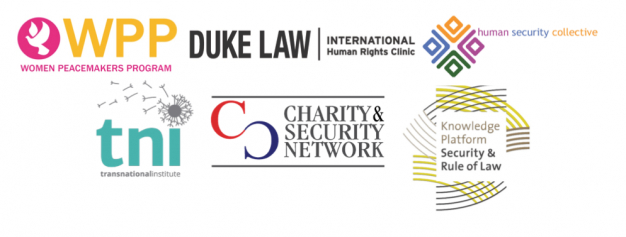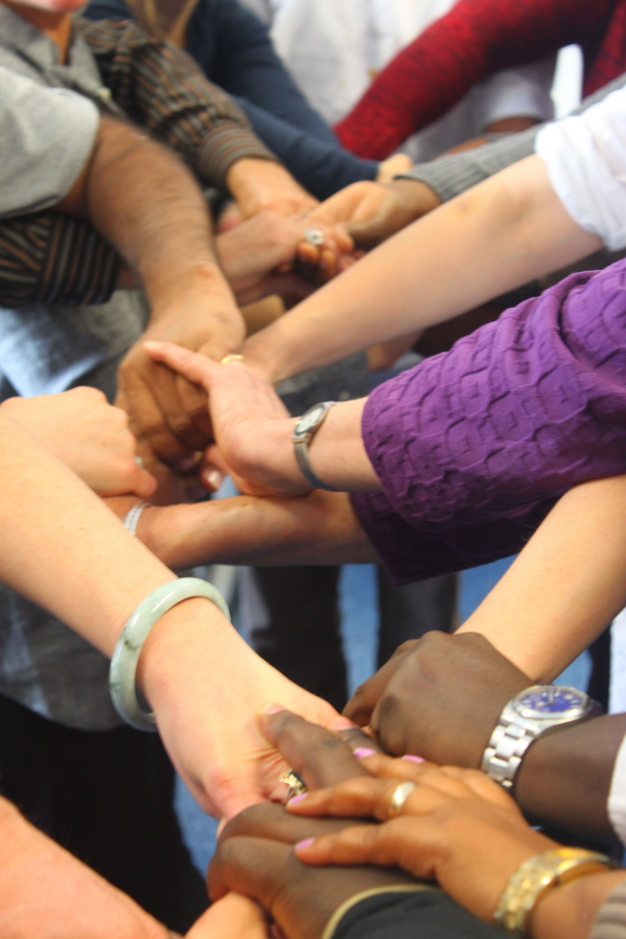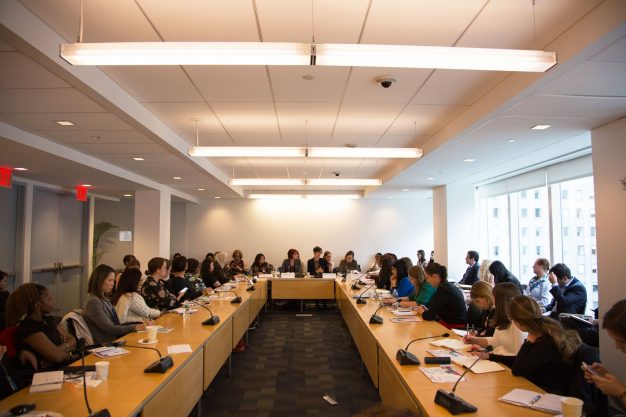Joint Statement:
Read the MENA Statement in PDF (English)
Read the MENA Statement in PDF (Arabic)
From 27-29 May, 20 representatives of civil society organizations from the Middle East and North Africa (MENA) region, working on Women, Peace & Security, came together for the MENA Consultation, organized by the Women Peacemakers Program (WPP) and ABAAD- Resource Center for Gender Equality. After 2,5 days of informed discussion, creative thinking and joint strategizing on advancing the Women, Peace & Security agenda (WPS), the participants developed the following statement to inform future initiatives on the subject in the MENA region.
The Middle East and North Africa region (MENA) has a long history of courageous women and men dedicated to establishing peace and just societies in the region. For them, but also for the men and women working to establishing peace today, sharing experiences, creative cooperation and joint strategizing are cornerstones for ending violence and creating peace.
Violence is a cornerstone of the patriarchal system. Among other, forms of discrimination, injustice, and power control degrade the human rights of peoples within it, encourages gender inequalities, legitimizes armed conflict and occupation and halts development in our societies. The use of active nonviolence is therefore essential to demonstrating not only that change can occur without violence, but also that these changes can lead the MENA region successfully away from patriarchy. Alternative systems can exist in the region, and in the world, that respects the rights of all and where development is sustainable.
There are many examples in the Middle East and North Africa of men and women working together to address conflict and injustice in a peaceful, nonviolent manner. Their work and activism illustrate that solving conflict without the use of violence, taking up arms, or dehumanizing, is possible. However, in order for opportunities and success of nonviolent conflict resolution, in line with the UN Security Council Resolution 1325 and accompanying Women, Peace & Security resolutions, to flourish in the region, the following issues need to be addressed:
An important part of men and women working together for nonviolent actions is decreasing the polarization within communities. This can be done by building bridges, which means seeking shared values and views, in order to jointly address the conflict at hand. Civil society in the Middle East and North Africa can be a role model in this regard, by approaching each other with respect and coming together for a shared peace vision. Solidarity is key, both between activists and organizations working on defending human rights, as well as between parliamentarians, women in decision-making processes and civil society for effectively advancing gender equality and peaceful conflict resolution.
Nonviolent actions start with a common voice of people, finding each other to work together for change. Any transformative change in the Middle East and North Africa, whether it is for gender justice, peace, or both, has to come from the local people themselves.
Working together with committed and creative activists from the MENA region to champion Women, Peace & Security is key to advance future peace and stability in the region. The hope and belief is that as these activists inspire others within their countries a culture of peace, respect, and collaboration, based on human rights and gender equality, will replace patriarchy and violence in the MENA region.
ABAAD – Resource Center for Gender Equality
Arab Women Organization of Jordan (AWO)
Baghdad Women Association
Horiyat Group For Development and Human Rights
MIFTAH
Nuon Organization for Peace Building
Palestinian Working Women Society for Development
Palestinian Counseling Center
Permanent Peace Movement
Syrian Women Forum for Peace
WADI - Association for Crisis Assistance and Solidarity Development Cooperation
Wogood for Human Security Foundation Yemen
Women’s International League for Peace & Freedom (WILPF)
Women Peacemakers Program (WPP)
Yemen Organization For Defending Rights & Democratic Freedoms
12 Dec '17 Today, we are pleased to share with you the Conference Report “Financial Inclusion for Freedom and Security” by the Women Peacemakers Program, Duke Law International Human Rights Clinic, Human Security Collective, Transnational Institute, the Charity & Security Network, in cooperation with the Knowledge Platform Security and Rule of Law.

7 Dec '17 Today, on the 13th day of the 16 Days of Activism Against Gender Violence Campaign, we bring you the sad news that from 15 December onwards, the Women Peacemakers Program (WPP) will have to close its doors. We would like to ask for your time to read what has driven us to make this decision.

7 Nov '17 On Thursday, 26 October 2017, a side event entitled, “Pulling the Rug from Under Our Feet: What is the UNSCR 1325 Without Civil Society Freedoms?” was hosted on the margins of the 17th anniversary of United Nations Security Council Resolution (UNSCR) 1325. The event was hosted by the Women Peacemakers Program (WPP) and the Dutch Mission, in collaboration with Duke Law’s International Human Rights Clinic, Al-Hayat Center for Civil Society Development, Arab Women Organisation of Jordan, NOVACT, Free Sight Association, Iraqi Al-Amal Association, Women Empowerment Organisation, NGO Working Group on Women, Peace and Security and Women’s International League for Peace and Freedom. This article briefly looks at the main issues discussed during the event.
